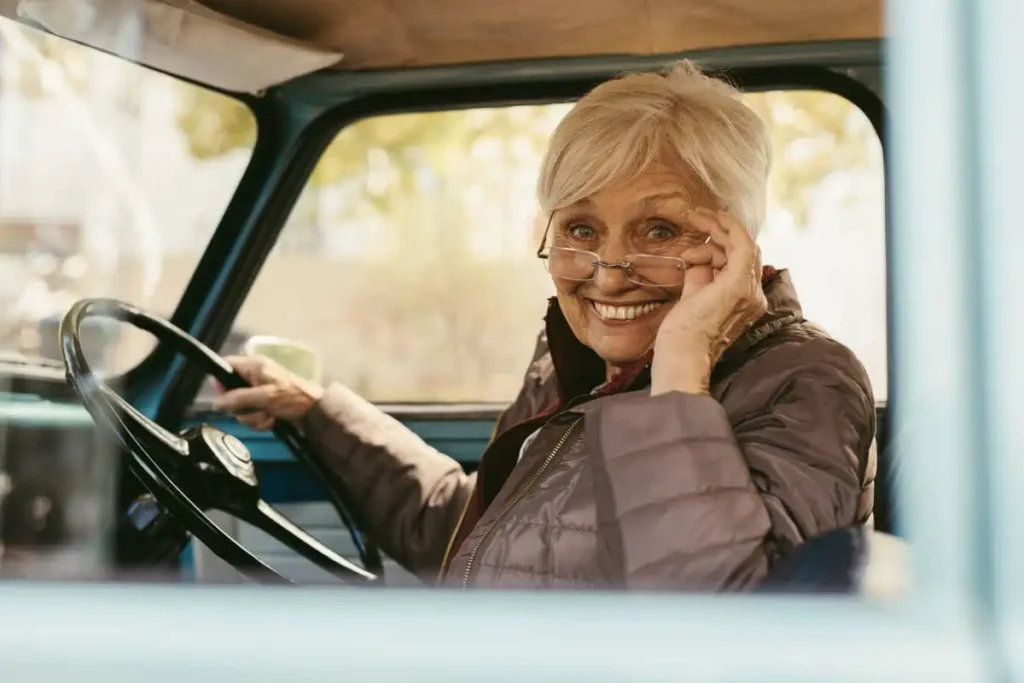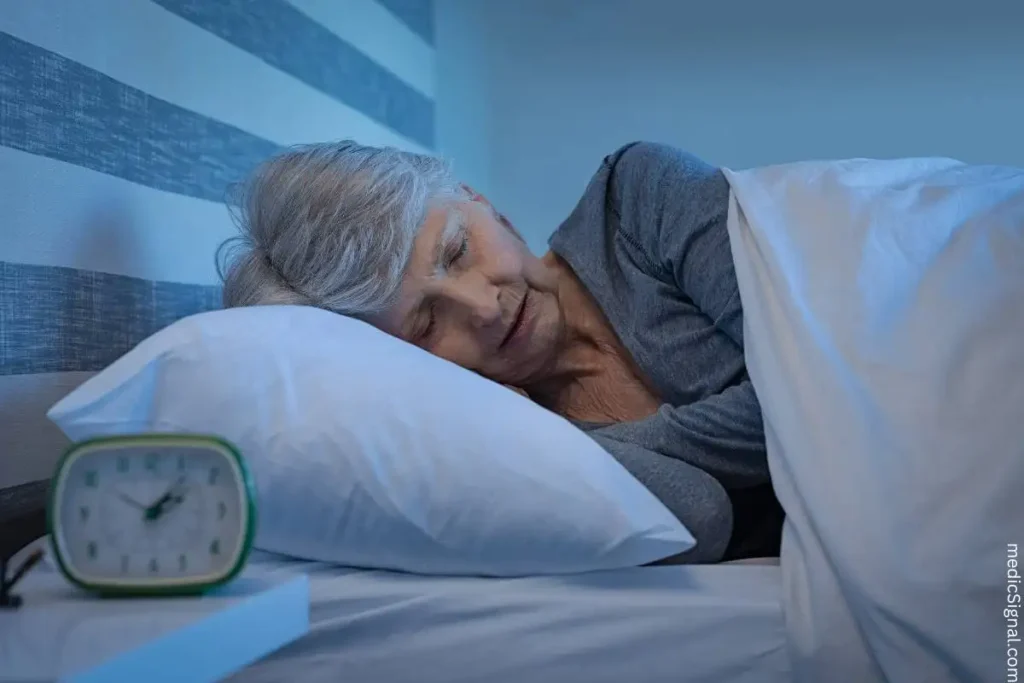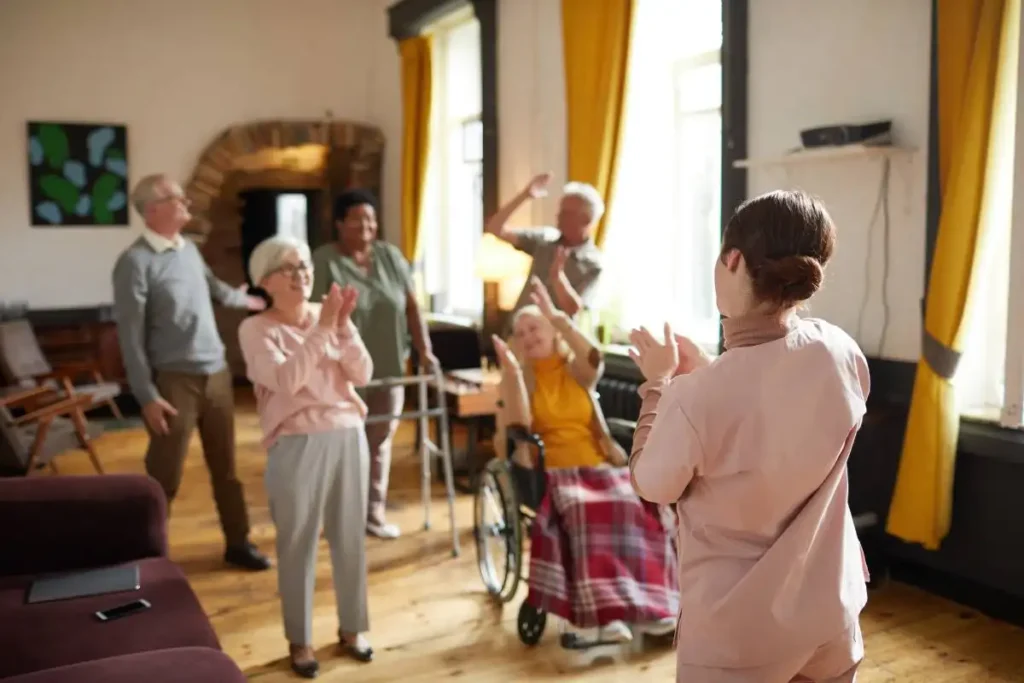Dementia is a term that describes a range of symptoms affecting memory, thinking, and social abilities. It is more than just memory loss; it impacts daily life significantly. Various types of dementia exist, with Alzheimer’s disease being the most common.
Seniors with dementia face several challenges that can complicate their daily routines. These challenges include:
- Memory loss, leading to confusion and disorientation
- Difficulty with communication and understanding
- Changes in mood and behavior
- Struggles with completing everyday tasks
Recognizing these challenges is essential for finding effective solutions that enhance their quality of life.
Introduction to GPS Trackers
GPS trackers are devices that use Global Positioning System technology to determine the precise location of a person or object.
For seniors, especially those with dementia, these trackers can be invaluable tools for safety and peace of mind.
These devices work by sending real-time location data to caregivers or family members through a smartphone app or web interface.
They can alert loved ones if a senior wanders outside a designated area, making it easier to respond quickly if needed. GPS trackers come in various forms, including wristbands and pendant styles, ensuring that seniors can wear them comfortably.
Enhancing Safety and Security
Improving Safety
GPS trackers serve as a vital resource for enhancing the safety of seniors with dementia. These devices ensure that loved ones can be located quickly if they wander off or become disoriented.
For instance, a senior might leave home for a walk and inadvertently lose their way. With a GPS tracker, caregivers can locate them promptly, reducing the risk of harm and distress.
Real-Time Location Tracking
Real-time location tracking is a standout feature of GPS trackers. This capability allows family members to monitor the whereabouts of their loved ones continuously. If a senior goes missing, the tracker provides instant updates on their location, enabling rapid response.
For example, if a senior with dementia takes a route they frequently walk, the family can follow their movement via an app, ensuring they remain safe.
This feature not only helps in emergencies but also fosters a sense of security for both seniors and their families.
Peace of Mind for Families
GPS trackers offer invaluable emotional support for families caring for seniors with dementia. The constant worry about a loved one’s safety can lead to significant anxiety.
Knowing that a GPS tracker is in place alleviates some of that stress. Family members can focus on their daily lives while having the reassurance that they can locate their loved one easily.
A caregiver shared,
“Before we got the GPS tracker, I was always anxious. Now, I can check in on my dad without constantly calling him. It gives me peace of mind knowing he’s safe, even when he’s out and about.”
This sentiment resonates with many families who face similar challenges.
With real-time tracking, families can monitor their loved ones’ movements, allowing them to engage in daily activities with less fear.
This sense of security not only benefits the seniors but also fosters a healthier, more balanced emotional state for caregivers, leading to a better quality of life for everyone involved.
Promoting Independence
GPS trackers play a significant role in allowing seniors with dementia to enjoy a sense of independence. With the right technology, they can venture out for walks, run errands, or visit friends without constant supervision. This autonomy is essential for their emotional well-being.
For instance, consider the story of Mary, an 82-year-old grandmother who loves gardening. Before she got a GPS tracker, her family hesitated to let her go out alone.
Now, with the tracker, Mary can tend to her garden and visit nearby parks without burdening her family with worry. She feels empowered while her loved ones can easily check her location.
Some examples of increased autonomy include:
- Going for walks in the neighborhood, knowing help is just a tap away.
- Visiting friends or family, fostering social connections.
- Participating in community events without constant oversight.
These small steps toward independence not only enhance the quality of life for seniors but also strengthen their confidence.
Emergency Assistance
GPS trackers provide critical support in emergencies for seniors with dementia. These devices are equipped with features that allow for immediate alerts when something goes wrong.
For instance, many trackers have an SOS button that seniors can press to notify caregivers or emergency services instantly.
Statistics show that response times for emergency services can improve significantly with GPS technology. In fact, studies indicate that having a GPS tracker can reduce response times by up to 50%. This rapid assistance can be a lifesaver when every second counts.
Additionally, GPS trackers offer real-time location sharing. This means that, in case of an emergency, caregivers can quickly locate their loved ones.
Knowing where a senior is can make all the difference in providing timely help. With these features, families can feel more secure, knowing that they can respond swiftly to any situation that may arise.
Maintaining Daily Routines
GPS trackers play a vital role in helping seniors with dementia maintain their daily routines. These devices can monitor various activities, ensuring that seniors stick to their schedules. By tracking movements, caregivers can gain insights into patterns, which can be crucial for maintaining a sense of normalcy and stability.
For caregivers, this technology offers significant advantages. Knowing that a loved one is following their routine can reduce stress and anxiety.
Caregivers can easily check on the activities of seniors without needing constant supervision. This allows for more flexibility in their own schedules while ensuring that their loved ones are safe and engaged.
When caregivers have access to tracking data, they can make informed adjustments to routines. If a senior is wandering or missing appointments, caregivers can quickly intervene.
Ultimately, GPS trackers not only support seniors in keeping their daily habits but also empower caregivers to provide better, more efficient care.
Ease for Caregivers
GPS trackers significantly alleviate stress for caregivers of seniors with dementia. With the ability to monitor their loved ones’ whereabouts in real-time, caregivers can focus on providing support rather than worrying about safety.
One caregiver shared,
“Knowing that I can check my mom’s location at any time gives me peace of mind. I can finally breathe a little easier.”
This technology not only reduces anxiety but also enhances caregiving efficiency. Caregivers can save time by tracking movements instead of searching for their loved ones. With instant access to location data, they can respond quickly in case of any issues, ensuring that seniors remain safe and secure.
GPS trackers allow caregivers to plan activities better. They can coordinate schedules and adjust routines based on the senior’s movements.
The combination of stress reduction and improved efficiency leads to a more positive caregiving experience overall, making life easier for both caregivers and their loved ones.
Cost-Effectiveness
GPS trackers for seniors with dementia offer an affordable solution that brings significant long-term savings.
The initial investment in a GPS tracker can vary, typically ranging from $25 to $150, depending on features and brand. While this might seem like a notable expense, the benefits often outweigh the costs.
Consider the potential savings from reduced emergency situations or hospital visits. A GPS tracker can help prevent wandering, which is a common issue among seniors with dementia.
This not only keeps seniors safe but also saves families from the financial burden of emergency services.
| Initial Costs | Potential Annual Savings |
|---|---|
| $25 – $150 | $500 – $2,000 |
Investing in a GPS tracker can lead to peace of mind and financial savings. Over time, the cost of preventing serious incidents can far exceed the initial purchase price, making GPS trackers a smart choice for families caring for seniors with dementia.
Addressing Privacy Concerns
When considering GPS trackers for seniors with dementia, privacy is a valid concern for many families. Fortunately, modern GPS trackers come equipped with various privacy features designed to protect the user’s information.
Many devices allow users to control who can access their location data, ensuring that only trusted family members or caregivers have visibility.
Some trackers offer geofencing capabilities, alerting users if their loved one wanders beyond a designated area. This feature enhances safety while respecting the senior’s personal space.
A common sentiment among families is that “the peace of mind provided by GPS trackers outweighs any privacy concerns.” Balancing safety and privacy is essential. Families must feel secure knowing their loved ones are safe while respecting their autonomy. With the right GPS tracker, it’s possible to achieve that balance.
User-Friendly Design
When selecting a GPS tracker for seniors with dementia, user-friendly design is crucial. Many devices feature simple interfaces tailored specifically for older adults.
Large buttons, clear instructions, and intuitive layouts make navigation effortless. This is especially important for seniors who may struggle with technology.
Ease of use significantly enhances the overall experience. Most GPS trackers come with straightforward setup processes.
Many require minimal technical knowledge, allowing seniors to focus on their daily activities rather than learning complex systems. Some trackers even have voice commands, making it easier for users to access features without needing to press buttons.
Many devices offer visual alerts or notifications. This ensures that seniors receive important information without feeling overwhelmed. A well-designed GPS tracker not only promotes independence but also empowers users to maintain their routines with confidence.
Technological Advancements
Recent technological advancements in GPS trackers have significantly enhanced their functionality and usability for seniors with dementia. Many of today’s devices come equipped with advanced features that make them more effective and easier to use.
Current GPS trackers may include:
- Real-time location updates, allowing families to monitor movement instantly.
- Geofencing capabilities, which alert caregivers if a senior wanders outside a designated area.
- Emergency buttons that provide quick access to help when needed.
- Integration with smartphones for seamless communication and alerts.
Looking ahead, future trends in GPS technology promise even greater enhancements. Expect to see:
- Wearable technology that blends seamlessly into everyday items, like watches or jewelry.
- Improved battery life, ensuring devices can operate longer without charging.
- AI-driven features that learn user patterns and predict potential wandering behavior.
- Enhanced privacy settings to reassure users about their data security.
These advancements not only improve safety but also foster greater independence for seniors, enhancing their quality of life.
FAQs about GPS Trackers for Seniors
Many people have questions about using GPS trackers for seniors with dementia. Here are some common inquiries and their answers:
1. How do GPS trackers work?
GPS trackers use satellite technology to determine the location of the device. They send this information to a connected app, allowing family members to monitor the senior’s whereabouts in real-time.
2. Are GPS trackers easy for seniors to use?
Most GPS trackers are designed with user-friendly interfaces. Many devices require minimal setup and can be operated with just a few buttons, making them accessible for seniors.
3. Can GPS trackers help in emergencies?
Absolutely. Many GPS trackers come with emergency buttons that can alert caregivers or emergency services quickly. This feature can be crucial for seniors who may need immediate assistance.
4. What if my loved one removes the GPS tracker?
Some devices have features like geofencing, which alerts caregivers if the device is taken outside a designated area. This helps ensure that seniors remain safe.
Key Takeaways
GPS trackers offer numerous advantages for seniors with dementia, enhancing their safety and providing peace of mind for families. Here are the main points discussed:
- Enhanced Safety: Real-time location tracking ensures seniors are monitored effectively.
- Independence: Seniors can maintain autonomy while reducing caregiver anxiety.
- Emergency Assistance: Quick response features enable timely help in emergencies.
- Ease for Caregivers: Streamlined tracking reduces stress and improves caregiving efficiency.
- Cost-Effectiveness: Affordable options lead to long-term savings for families.
The integration of GPS trackers into the lives of seniors with dementia is not just beneficial; it serves as a vital resource that enhances their quality of life.




